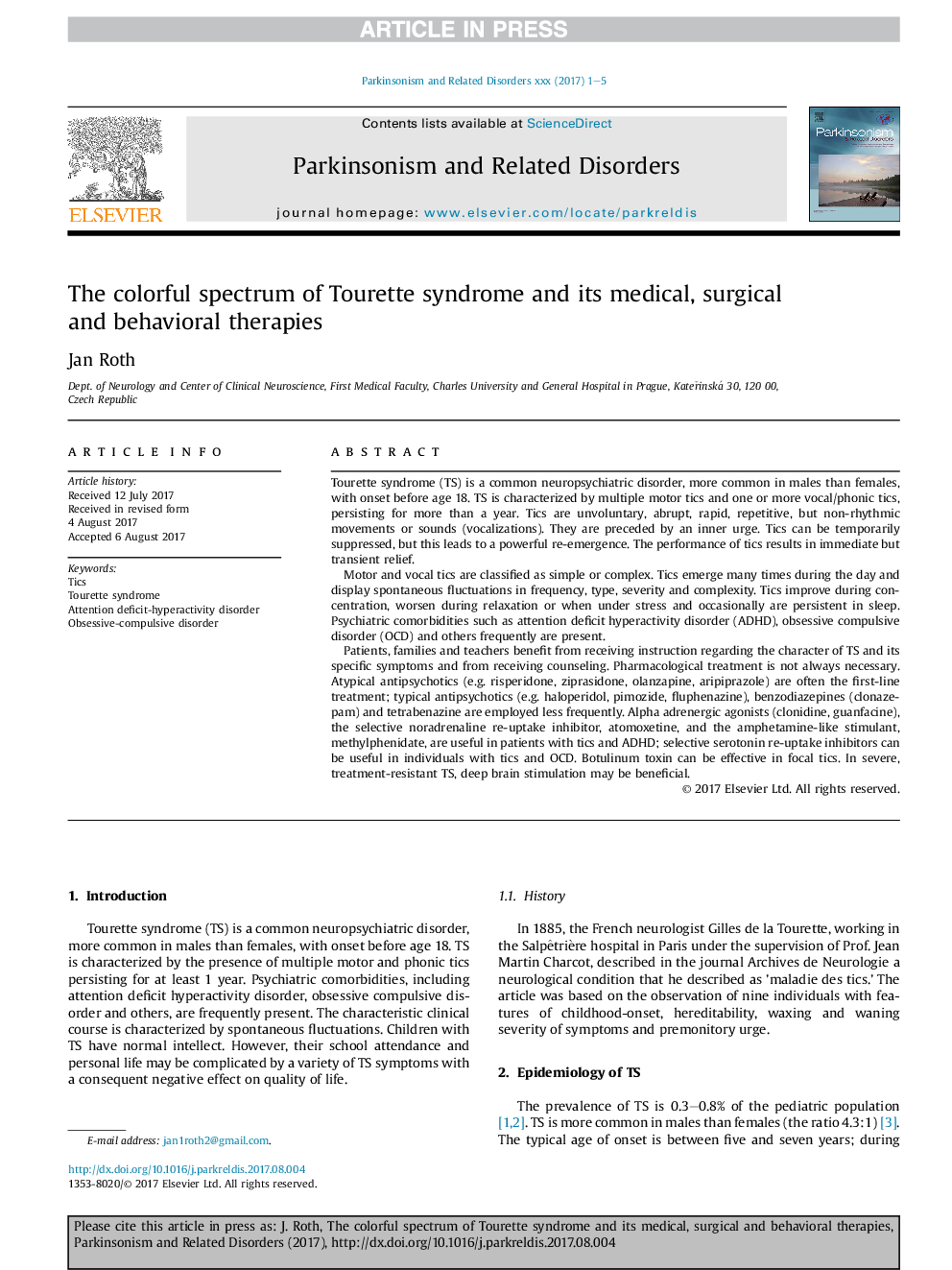| Article ID | Journal | Published Year | Pages | File Type |
|---|---|---|---|---|
| 8285633 | Parkinsonism & Related Disorders | 2018 | 5 Pages |
Abstract
Patients, families and teachers benefit from receiving instruction regarding the character of TS and its specific symptoms and from receiving counseling. Pharmacological treatment is not always necessary. Atypical antipsychotics (e.g. risperidone, ziprasidone, olanzapine, aripiprazole) are often the first-line treatment; typical antipsychotics (e.g. haloperidol, pimozide, fluphenazine), benzodiazepines (clonazepam) and tetrabenazine are employed less frequently. Alpha adrenergic agonists (clonidine, guanfacine), the selective noradrenaline re-uptake inhibitor, atomoxetine, and the amphetamine-like stimulant, methylphenidate, are useful in patients with tics and ADHD; selective serotonin re-uptake inhibitors can be useful in individuals with tics and OCD. Botulinum toxin can be effective in focal tics. In severe, treatment-resistant TS, deep brain stimulation may be beneficial.
Related Topics
Life Sciences
Biochemistry, Genetics and Molecular Biology
Ageing
Authors
Jan Roth,
